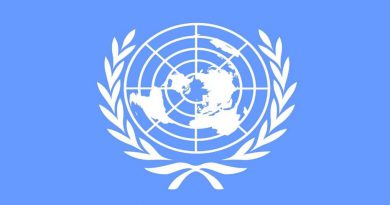Safar al-Hawali — one of the fathers of modern Terrorism
Through his 3,000-page book “Muslims and Western Civilization,” published in 2018, detained Saudi cleric Safar Al-Hawali aimed to revive ideologies from his days with the Islamic Awakening movement, and to criticize the government for striving toward moderation and modernity.
The movement incited hate toward other religions, called for jihad in Afghanistan and other occupied Muslim lands, and opposed the Saudi government allowing US troops to be based in the Arabian Peninsula during Operation Desert Storm in 1991.
Al-Hawali calls for jihad to be a main focus in daily education. His book’s circulation led to his arrest on July 12, 2018.
The radical cleric rose to fame in the 1990s as one of the leaders of the Islamic Awakening alongside preacher Salman Al-Odah.
While the latter was a firebrand, Al-Hawali used his calm and collected demeanor, and his position as an academic, to call on his followers to perform jihad in occupied Muslim lands.
He was arrested for refusing to atone and stop his hate preaching in 1994, and was released after serving his five-year sentence. But his extremist views and fatwas (religious edicts) were still available on his website.
Born and raised in the Saudi city of Al-Baha, Al-Hawali received his bachelor’s degree in Islamic law from the Islamic University of Madinah, and his master’s and Ph.D. in Islamic theology from Umm Al-Qura University in Makkah.
Alongside Al-Odah and other Awakening Movement leaders, he preached against the foreign military presence in Saudi Arabia during Operation Desert Storm in 1991, which liberated Kuwait from Iraqi occupation. The outspoken clerics incited hate toward the West and called for jihad.
After a joint commission in 1994, led by Grand Mufti Abdulaziz ibn Baz, found the movement’s hateful rhetoric a danger to Saudi society, the government disbanded the movement.
Following his release from prison, Al-Hawali questioned the public’s negative views on Al-Qaeda, its late leader Osama bin Laden and jihad, most notably on Saudi Channel 1.
In the wake of the 9/11 terror attacks on the US, the detained cleric criticized Western media for exaggerating the involvement of Al-Qaeda, and even claimed on Saudi TV that he had no proof of its existence.
“Americans created an entirely imaginary organization and supported it to attack their own country and other places, not only Muslim countries,” he said.
He refused to recognize the existence of Al-Qaeda, and addressed Bin Laden as “sheikh.” When the TV presenter asked why he addressed bin Laden in such a respectful manner, Al-Hawali said: “He is innocent until proven guilty.”
Time and again, Al-Hawali pointed to the West as the enemy, writing in his book: “The West is waging a vicious crusade against us and colonizing our lives.” In the book, he supports terrorist acts regardless of the effects on Muslim communities.
Al-Hawali believes that Muslims have a religious duty to support jihadists, saying: “There is no solution to any crisis or an exit from the dark tunnel except through asceticism and the revival of jihad in this nation.”
In a lecture titled “Answering Those who Altered the Religion of Jesus Christ,” he urged teachers to devote time in their classes to sowing enmity toward Jews and Christians.
He criticized the Saudi government for investing in the entertainment sector, believing that the duty of Muslims is to prepare for jihad with the government’s support.
“According to officials in Saudi Arabia, they (the government) will spend $65 billion, or more than SR200 billion, on opening cinemas. Would it not be better to spend these billions on preparation for jihad?” the detained cleric wrote.
He has called for the revival of suicide attacks, calling them “martyrdom operations” that “intimidate the enemy” and “display the courage of Muslims.”
He wrote: “Jihadists should be honored, not imprisoned, and if they do something wrong, they should be corrected.”
Article first published on Arab News.



